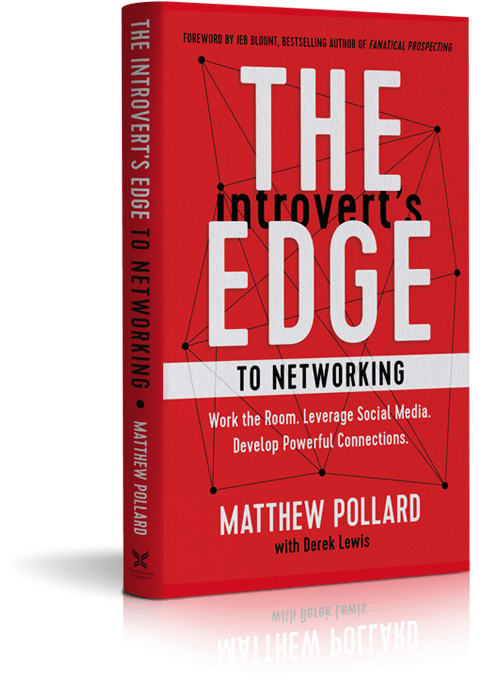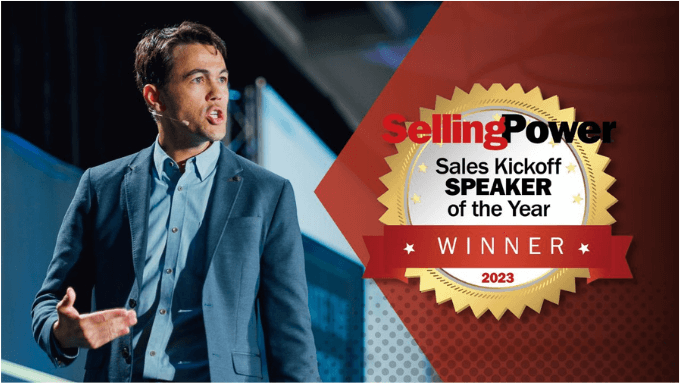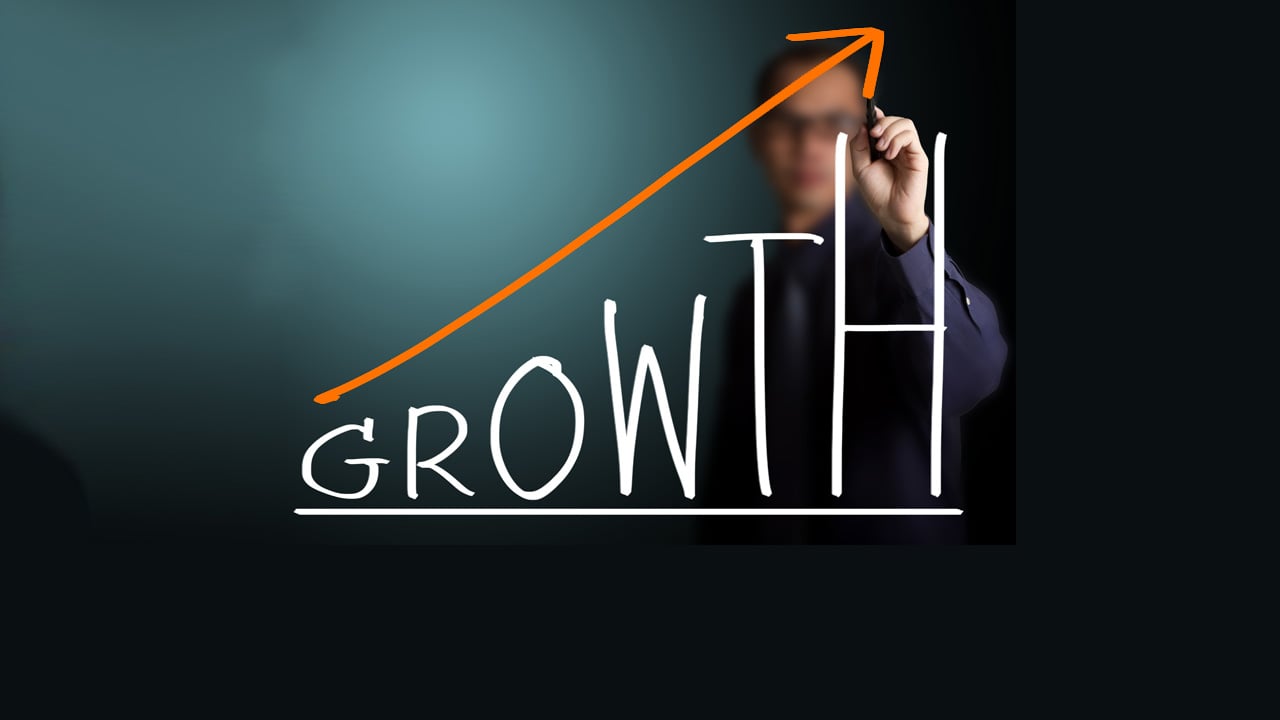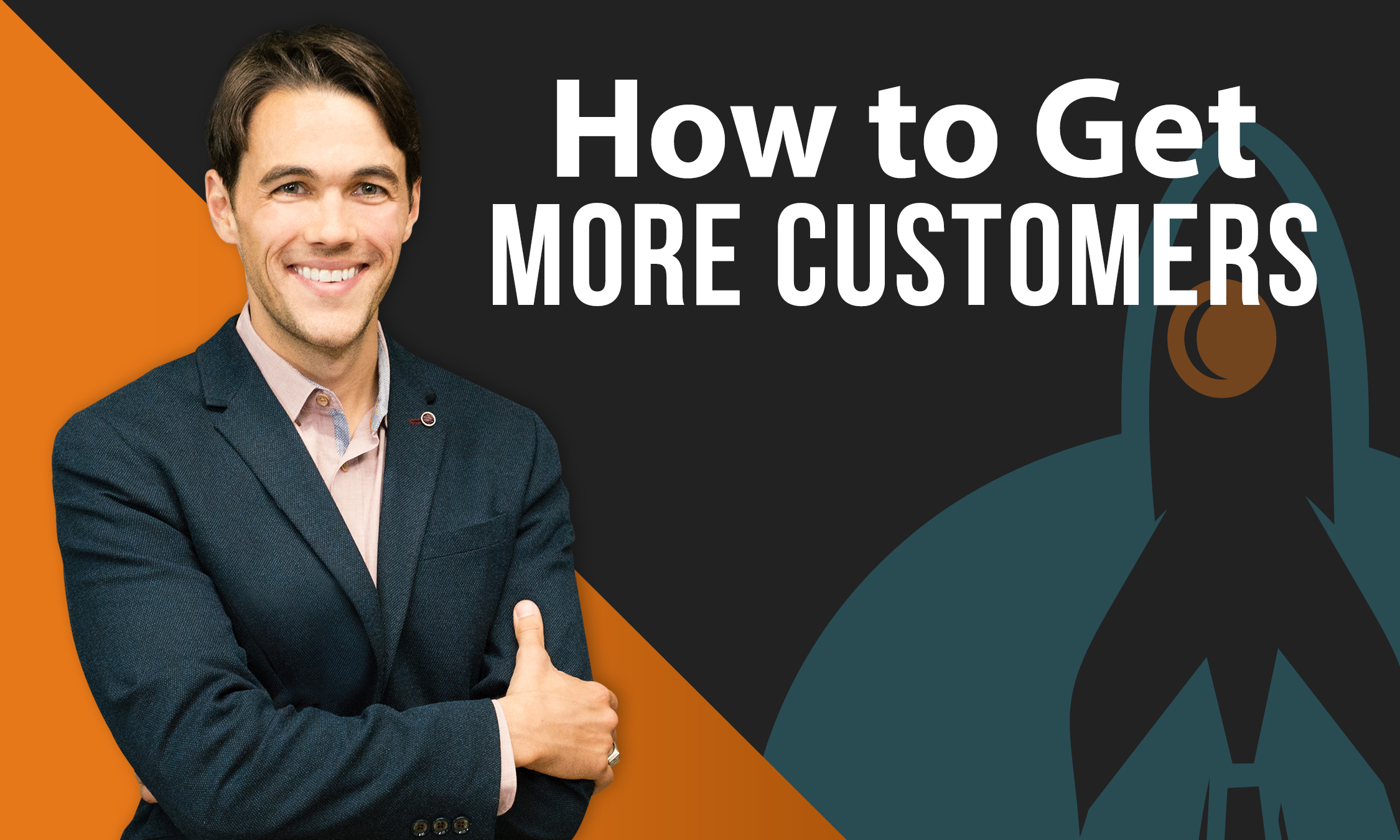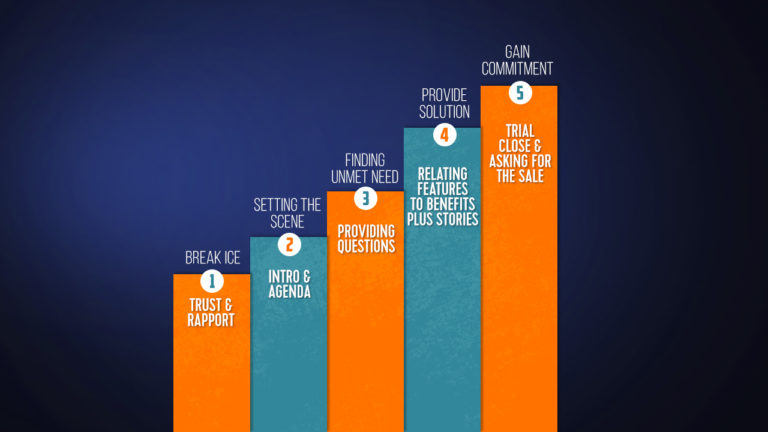Fox 7’s, Good Day Austin, Transcript
Host: Welcome back to Good Day. May 4th through 8 is small business week. A time that honours entrepreneurs and small businesses across the country. Here with us this morning is Matthew Pollard, a serial entrepreneur, author, speaker, coach and consultant – with some advice for the business owners. Matthew, good morning.
Matt: Morning, it’s great to be here.
Host: Yeah good to see you.
Matt: Yeah you too, you too.
Host: So, okay, tell me first. I want these folks to get an idea. You just moved here for Australia?
Matt: Yeah in February.
Host: What’s going on here with you, yes? Not been a long time.
Matt: Yeah, it’s been pretty flat out, it’s been very flat out. Well, Austin’s a great town and for businesses, it’s phenomenal. So many startups, so many different events going on. So I just, I fell in love with Austin when I got here. So I moved here in February last year, and it’s just been hectic. We’ve had Google Startup Weekends. I’m about to do AngelHack coming up just– Just later on this month actually, so it’s been very busy.
Host: Yeah, a busy guy. So we’re gonna talk a little bit about, and this gonna be very helpful for business owners, small business owners. This is a big week coming up for you guys.
Matt: It is.
Host: So let’s first start off with something, differentiation, and why it’s an important concept for competition?
Matt: Yeah definitely. So a lot of small businesses really struggle separating themselves from anyone else, and unfortunately that means they just have to continually compete on price. And it’s understandable why that is. I mean a lot of small businesses, they learn from their boss. And then when they go out and do business for themselves, that’s all they know. So they start to build out their products and services exactly the same as their boss does, and then unfortunately there’s nothing different about them, so you can only compete on price. So you’re competing against the people that taught you, plus the people that taught other people. And the only thing you can differentiate yourself is with price. And it’s a long way to the bottom, but unfortunately it just means no one earns any money. So differentiation is the only important thing, or the most important thing to separate yourself from everyone else. And yet, it’s the thing that most people don’t think about. They just want to get in and start doing the job.
Host: Mate, well we hear a lot of things about differentiation, but also niche marketing. So, can you tell me a little bit about how folks can find those people for their business? Find the right target audience I guess?
Matt: Yeah sure. So what it’s really about is looking for what is the unmet need in a market. So what markets are missing out on something, and if you could provide that, you’d get exponential growth. See for instance, in my last businesses, all it was about – for instance my very last business, we created a education specifically for the trade demographic. Because they hated school, and they wanted business coaching. So we provided business coaches to the trade demographic in an educational format where they could afford it. And all of a sudden, you get exponential growth. Now for a lot of small businesses, they’re competing in the markets – again, like they learned from their boss. And what it’s about is stepping out of that and taking a bit of a wider view and saying, “What markets are missing out on something? If I was to deliver that, can I have no competition?” And that’s what the answer is really to growth, no competition.
Host: Right, well I mean, I am – the business is so difficult to comprehend for me, but for some people, these are important things that they need to learn–
Matt: Definitely.
Host: In order to grow their business. And we want to help you guys here, because we’re in Texas, we love small businesses. And the last point that I wanted to touch on was sales and systematisation. So can you talk about that a little bit and how they can better that in their area of work?
Matt: Yeah definitely. So I think that there’s a common misconception, which is, that you have to have the gift of the gab to be able to sell. And it’s just not the case. Obviously people that are natural extroverts are gonna be better sales people at the start. Just like in university, there are some people that are better naturally in year one. But it’s the people that put the work in that do better over time. And unfortunately with sales, ’cause it’s not taught in school, most people don’t realise that. So sales is just like a system, just like anything else. So if you spend some time understanding that there are milestones and steps in the process, and you can learn it almost like a script. Then you can go out and speak to people and feel much more comfortable doing so. And for the introverts out there, which I was. I had a reading speed of a sixth grader when I was in late high school. I was a very introverted kid, and I had to learn those systems and those processes, just to be able to communicate with people. And I found that I went from 93 doors before my first sale, I was a door to door sales person. To all of a sudden, I was the best in the nation within a series of weeks. Because I actually researched it and did the work, where most people used an excuse, “I don’t have the gift of the gab, therefore I can’t do it. And now I spend my life teaching other introverted people how they can actually be better than most people with the gift of the gab, just because they know all the systems, they know the processes. They’re gonna be better on every single day, as opposed to the gift of the gab who – you know that when they have a good day, they’re really happy. But if they have a fight with a family member, then all of a sudden they’re not on and their sales slump. So it’s about creating that consistency.
Host: Well you obviously have so much advice to offer these small businesses, these entrepreneurs. How can they find out more? How can they get help from you? ‘Cause I’m sure that after listening to this, some of them will want to go into more depth with you, so–
Matt: Yeah definitely, so you can find me on my website, which is matthewpollard.com. You can also listen to my podcast, which is Better Business Coach Podcast. You can find that on iTunes. But also I’ve got some events coming up in town. So I’ve got AngelHack that’s coming on later on this month, and also there’s a Google Startup Weekend for education coming up in early June, and I’m a judge for both of those. So if you’re a new starter and you obviously want to be able to get some advice, and want to be around a community of entrepreneurs like yourself. You can come along to those events and get some really good support, pitch coaching and some critique from people that are skilled – just as skilled as myself.
Host: Well thank you so much Matthew for coming and talking about small – US Small Business Week, that’s happening this coming up week. And welcome to Austin.
Matt: Thank you.
Host: I know that it’s pretty new to you, so welcome Matthew. But we expect to see you back on the show. But thanks so much again.
Matt: You’re more than welcome, thanks for having me.
Host: Yep, absolutely.
Conversations with a Genius Transcript
GN: Matthew, please say hello to Genius nation.
Matt: Good to be here.
GN: Walk us through a day or week in the life of Matthew Pollard. What do you do? How do you help people? What do you like? What do you hate? What’s going on?
Matt: Well, you talked about the fact that I’m a niche marketing, differentiation and sales systematization strategist. And thank you for trying to get through that. I call it “Rapid Growth Coaching.” Because we talk about your listener-ship, and they’re all people that have got businesses and got careers of their own. And they’re in that 6 figure marker post, but they want that rapid growth for themselves. The thing that they struggle with is getting a swell underneath their customer base. And a lot to do with that is that they don’t have a unique message. They’re trying to do so many things, or be everything to everybody. So what I really do is I focus on helping them create that unified message. Stepping away from – for instance, for myself, sales niche marketing and differentiation – and just calling it “Rapid Growth.” I did that a few years ago and it made such a difference to how many customers I got traction with. Because people just identified with that message.
GN: Coach me up. Like let’s talk about, pretend I was a, I’m gonna think of the most ridiculous thing. I’m an electronics repair guy. So if your TV’s broken or anything electronic, you bring it to me, I’ll fix it. And I want your help, and the first thing you ask me is, “Well, who do you serve?” And I give the uninitiated answer, which is, “Everybody’s my customer.” If you own a piece of electronics, I can help you. Coach me through how to get that, that bad thinking on how you’d get me into somewhere profitable?
Matt: Well the truth is, that’s a wonderful message. Because you do help a lot of people, and everybody’s got electronics. So that’s a great thing to do. Unfortunately, there’s also a lot of other people doing that. So if you’re a person that fixes TV units, VCR’s, mobile phones, whatever – then you work and you supply something to everybody. But you really speak to nobody. And that’s the real problem. Because in a saturated market full of lots of competitors, if you speak to nobody as the people that rally to your cause – then you have to spend all your money marketing, and you have to continually go out and look for new customers. And you’re always fighting, just based on price.
So what we really need to do is, we need to pull that back. And the real question is, “What do you really specialize in? Who is the group of people that you get the best results for?” And what you’ll find is that there will be something specific. For instance, if you’re an electronics repair person, you might have an absolute knack for fixing a television or for recovering data out of hard drives for instance. I mean I know a lot of computers will die. I had a hard drive that died a few years ago, and I spent several thousand dollars just recovering the data. Because that was before Cloud based backup. And I didn’t know. I looked for a bunch of different places to try and, to fix that hard drive. And everybody just said to me, “Oh yeah, we’re a computer repair company.” And I Googled it, and I couldn’t even find back then a company in my area that specialized in fixing that problem.
So there’s a delicate balancing act between the things that you do really, really well and the niche markets where you can speak to an audience where there’s very little competition. And generally what I do is I sit down and I, I first try to understand what a customer’s true goals are. And what a customer’s “why” statements are. See, if you don’t know what their goals are, and you don’t know why it’s important to them, it’s very hard to find their unique message. So what I do is I get them to write down, using a smart goal criteria. And most important it’s specific, measurable, and time based. So what are the goals they have, and set a time frame for how to actually achieve those. That’s just a preliminary worksheet so that people can write why it’s important to them. And generally you’ll find when people have to write the “why” statement, it’s all people trying to write what their mom, their dad and their drunk uncle instilled in them that was important. It’s not truly important to them. So I find they rewrite those goals many times. Then what I do is I get them to write a customer profile of who their best customers are. Who they make their most money off, who they get their best results out of.
GN: How do you find that? How does – so if we’re writing that best customer profile out there, is that data based, or just kind of by what I feel? Or how do you put that together?
Matt: So, it’s interesting. A lot of times you’ll have a customer that you just know you did really well for. And you’ll talk about them in stories. You’ll talk to your friends, you’ll talk to your family. And they’re also ones that you know you make really good money out of. See, I had a language school just recently, and they do a lot of teaching Mandarin to lots of students. And a lot of them are young, others are adult learners. But then they were making a lot of money out of just a few entrepreneurs and high level CEO’s that needed to do business in China. And they were saying to me, “I don’t know how we can compete against all of these bargain basement language schools that will provide the same level of skill sets that we give them, at a much cheaper price.
And the answer was, that they were focusing on the wrong thing. The experts, the CEO’s, the entrepreneurs that knew they were gonna make a huge amount of money over in China, were the ones that they were truly getting the best results for. Because they didn’t provide the same level of service to that group of people. They talked about so many other things, like – how to get rid of the accent, how to focus on eCommerce over in China, how to create relationships with Chinese individuals. And we migrated their name from the Beijing Language Academy, to China Success Coaching.
GN: Beautiful.
Matt: And all of a sudden, like creating that name, people went, “Oh now I know what you do. You help people get success in China.” It wasn’t about creating a Mandarin skill, it was about making them successful in China. That simple differentiation in an industry that there’s thousands of language schools, made a huge difference to their growth.
GN: And I love what you did, is you kinda changed it from, “We teach language.” But very few people just want to say, “I speak Mandarin.” They just don’t. They want to do business there. They want to travel there. They want to – there’s a reason. So I love the concept of “We’re not gonna sell speaking Mandarin, ’cause that’s not really what they’re buying. We want to sell – starting a business in China, traveling to China. Whatever the goal is, and I think that’s got a tremendous amount of value versus just “Learn to speak Mandarin.” Which I, and everyone else has that exact same message. So A, it’s a terrible message. B, you’re competing with 1000 people. So I love what you did there, it’s a great example.
Matt: Well it was funny, because every client I have tells me that it’s very hard to compete in their market space. And then, they write me their goals, and it’s got nothing to do with the market space that they’re struggling within. Then they write me their customer profile and who they get their best results from. And yeah, this is high level coaching that they provide me well before we start our first session. It’s like a task I set them. And as soon as I read through it, it just clicks to me that they’re working very hard to get customers in the wrong space. They’ve got the wrong messaging, it’s not a unified message, nothing’s working. And once we change that, we get such different levels of success. We create that rapid growth behind their product and their name.
GN: Which is great, ’cause I think – so a lot of business coaches, if they had someone that – like you said, whatever you said, “The Beijing Mandarin School,” or whatever. Is that, “Hey what do you want to do?” Like well, we’re doing a million a million and a half in revenue. We want to go to 2 million in revenue,” or whatever their goal might be. A lot of coaches might come in and go, “Well, what’s your marketing look like? And how are you getting customers and what’s your competition?” And not that those are bad things. But if you’re – it’s like you’re climbing a ladder leaned up against the wrong wall. And a bad coach is gonna teach you how to climb that ladder faster, a good coach is gonna go, “Well hold on, let’s lean that ladder up against the right wall first, then we’ll talk about how we can climb it faster.”
Matt: That’s exactly right. And I constantly have people that are just focusing on the wrong thing. They’re working really hard, they’re just – as you said, their ladder’s up against the wrong wall. And we just need to pick it up and move it across. And people say, “That industry’s really established.” I mean, I’ve had businesses in telecommunications. Businesses that I’ve grown myself. In education, where we became the number 1, fastest growing school – in a market that was completely saturated. And people said you could only get a few hundred students in the first few years. We got several thousand. We got 3 and a half thousand, including some of the major sporting teams – which would never go with a school like us, without that unified message.
I mean, I’ve done it – since I’ve got to the US, I’ve worked with ghost writers, I’ve worked with copy writers – and all of them are working so, so hard and have wonderful services. However, what they think their wonderful service is, isn’t actually what they truly provide, and that’s not where the true value is. And if I roll back to something basic for your listeners to understand, is the language school was talking about understanding Mandarin. Now that’s a feature, that’s not a benefit. Why does somebody truly want to learn Mandarin? Now if you’ve got a family and you’ve just married into – and your wife, family speaks Mandarin. Well that, you’d want to learn how to speak Mandarin so that you can successfully make sure the parents like you. If you’re a CEO, and all of a sudden you’ve got to go over and set up a corporation or work with a department over in China, well then you need to be successful in China. Language is just a portion of that. Understanding how to deal with the people, getting rid of the accent, learning the eCommerce systems. There’s a lot more to that, and all of a sudden, you take your, “I can only charge $50 to $80 an hour,” to “I can charge $200, $300 an hour. I can have different types of coaches for different parts.” You turn yourself into a full China Success School, as opposed to, “I just teach Mandarin.”
GN: Well then also, I love that example of what you said about – there’s the business owner that’s trying to do business in China, has a bunch of needs that aren’t– The foundation might be Mandarin, but – how to do business, how to offend people, how not to offend, what does the culture look like? And not only is that something good to know in your marketing so you don’t say, “Hey, learn Mandarin.” You say, “Learn how to succeed in business in China.” That’s different, but now you’ve got a bunch of products. You might have only been selling language, but now you can talk about – I know Japan’s very big on how you conduct business. And you have to hand your business card to them in a very certain way. And if you address somebody improperly or don’t hand your business card – there’s a lot of ways to upset people, or look like a stupid American or stupid Australian or wherever you’re coming from. So I think A, your marketing message change. And then B, all sorts of extra markets open up where your customer might have only been willing to invest $1000, or $500 if you’ve got the wrong customer. This business customer might say, “Well I’ll spend $1000, or $2000 or $3000 to learn the language. And I’ll spend 5 or 10 thousand to learn how to do business.” So I think, there’s just, there’s a lot of synergy going on when you’re really, really targeting who you’re helping and how you want to help them.
Matt: Look, it makes such a difference. I mean, somebody that says, “I’m willing to pay $80 an hour as a premium service to learn Mandarin.” Compared to, “I’m willing to do the China Success Intensive. Which is $30 000 to move me and my family across to China.” Because a lot of these CEO’s, and a lot of these executives that have to go to China – they’ve got to bring their wife or their husband and their kids. And those people are terrified about going to this place that they’re not gonna be able even communicate with anybody. So by creating this unified message, what you start to find is different products start to pop up. Different benefit propositions start to pop up. And all of a sudden, if you’re adding a zero, you might be able to add 2 zeros to the back end of your price – charge it as a package. Everything becomes easy, because you’re not doing everything like everybody else does anymore. Don’t need to charge per hour. All of a sudden you can charge in packages, you can charge for outcomes – as opposed to competing on a price. Which is what everybody has to do if they don’t have a differentiated message.
So that’s the start of the process. I have this terminology where I say, very similar to that movie, “Build it and they will come.” That’s what lots of people in business think. They have this functional skill, they’re very, very good at it. And they say, “I’ll build a business,” or, “I’ll become a consultant. And all of a sudden I’m going to be rich. Because now I can charge ridiculous amounts per hour, as opposed to working for an employer, and just getting paid a salary.” Unfortunately, they don’t work out what the unified message is, how they’re going to speak to that audience so that the audience of new customers rallies to their cause. They just open up the front door and expect the phone to ring, and people to walk in the door. And it just doesn’t happen. So the build it and they will come mentality just is incorrect. Their service, their product is probably fantastic. But without a little bit of homework, they just won’t get the success. And they’ll think customers don’t appreciate how great they are. It’s not that, they’ve spent no time trying to get that appreciation.
GN: Yeah I think it’s the difference between saying, “I love speaking Chinese, and I love teaching people Chinese – therefore, people will pay me to do Chinese.” Versus, “Hey people looking to do, to learn Chinese, what’s going on? What are your needs? Where are you at?” And it’s so much easier to find out what the – ask people what they want, and they go, “Well I really want to learn how to do business in China.” And then sell that to them instead of saying, “Well I want to Chinese, so that’s what you’re gonna buy.” You can do it, but good Lord, it’s a lot of work.
Matt: Look, exactly right. And I’ve had clients of mine, before they’ve started with me, that have decided that a lot of people don’t have the money for their services. So they start to put their price tag on their website, because they don’t want all these people wasting their time. And as soon as we’ve crafted this unified message, and allowed their website traffic to start to read these new messages, and taken off the price – then all of a sudden they’ve got people calling them. We’ve worked on their sales scripts on the phone so that they can transition people in a much more professional and structured way. All of a sudden, these clients are paying money. What was the difference? They convinced themselves that they had to compete on price, and they weren’t willing to negotiate past a certain price level – so they put that on their website. But people hadn’t identified with the unified message, people didn’t understand the complete benefits of the product. They see the price, and they click off.
So businesses get themselves backed into a corner, and I’ve seen tradespeople – and I’ve done a lot of work with tradespeople as well that won’t even come out and quote you. They want to quote you over the phone, they want to talk about their products and services over the phone because they’ve just – tired of wasting their time quoting. Because they go out, they spend all this time quoting, and then the customer won’t go with them. And they won’t go with them, because they haven’t given them a reason outside price – and they probably weren’t the cheapest. For me, I don’t want to compete on price. I provide a service that gives people outcomes, as opposed to walking in the door and saying, “So what do you want me to coach you on today?” A lot of coaches do that. And that’s what my podcast is about. Trying to get people out of just doing that as a business coach.
GN: So give me – I don’t want to beat this to death, but the first example’s so good about, “Hey, we teach Chinese to whoever wants to learn, and we can’t – we’re trying to struggle at 80 bucks an hour,” or whatever rate they were getting. Turning into, “We’re gonna teach business people how to integrate into China.” That’s a great example. Hit me with one more before I move on, or hit Genius Nation with one more example like that before I move on. Because I really want them to be able to do this. I don’t want the, “Well I don’t have a Chinese language, so it won’t work for business.” Hit us with 1 or 2 quick examples so they can kinda start get their creative juices flowing.
Matt: Sure, what I’ll do is, I’ll give you 2 quick segues. One was telecommunications, which was my first business. And what I realized, and you guys have – in America have got that happening at the moment. You’ve got all these new carriers providing all these different cell phones. And they’ve got all their coverage maps, and it’s confusing. But you can get it really, really cheap. Unfortunately, the service that you used to get – where there was only 1 company, has considerably gone down. And this is what happened in Australia about 10 years ago. We had one carrier, and you could get great service, but it was very expensive. Then all these new entrants made the prices cheaper, the 1 major company started to lose all their customers. And they started to reduce their prices, but then they had to reduce their service as well.
And what I realized is that, there were 2 things that happened. There was a group of customers that missed having quality service. And there was a group of customers that were so confused by all these companies that were out there, they had no idea which company to go to. So what I did, is I opened up a brokership. And the brokership focused on picking the best telecommunications product for each individual client. And the second thing that we focused on, is we managed all the customer service for the client, so that they didn’t have to go to the telecommunications company. And what we did, is we told people we were an independent broker that focused on service and savings, and we only worked with businesses. And when we did our telemarketing and we did our messaging out to an audience, people said to us, “We’ve been dying for somebody like this. Because realistically, we liked the old fashioned way of just getting good service. But we appreciate the savings, however now we can’t get good service from anyone. You guys come out, you make telecommunications simple, and you provide the service element as well.” And that was in all of our messaging.
In my last business, that was a school. And there were thousands of schools. There were over 1000 schools just in the small state that I lived in. And what we did, is we realized that there is a whole non-professional industry of people, and all of these people hate school. They don’t like school. You’ve got the, the people that have got degrees and Master’s degrees – and they all go to Universities for higher level education. And they’ll always be doing these certificates and diplomas and associate degrees. For the people that were non-professional that didn’t like school, a lot of these people were entrepreneurial. They left school at year 10, because they wanted to create a business. They were energetic, and they were impatient, and they wanted to just get out there and do it. What we realized is these people didn’t have business experience. They may have gone and worked for someone, and then decided to start in business for themselves. And they didn’t have any management training, they didn’t have the sort of skills required to be a successful business. They were just good at their functional skill.
So what we did, is we created a business that solely focused on business training. So while all the other schools had 200 qualifications, and spent all their time trying to sell all 200 – we had one. And we sold ourselves as a business school that offered business coaching training, as opposed to teacher based training. All of our trainers were business coaches, not teachers. And our primary sales pitch was, “Our coaches have been there, done that, had success, and are still out there coaching other organizations how to be successful. 95% of our customer base is business owners, and we teach people how to do it better. As opposed to a teacher, who teaches – who’s probably never really even done it themselves. They’ve just got a qualification, done their PHD, and now they’re teaching it without ever actually doing it themselves.” And that’s why we went from zero customers to 3 and a half thousand that quickly.
GN: Yeah I don’t think you’ve got the same saying in Australia, but in America we say, “Those who can’t do teach.” So–
Matt: Well that’s exactly right. And when you’re talking about people that have left high school because they just went, “Well education’s not for me.” What they all realized was that they needed business coaching. Unfortunately, business coaching was expensive, and they had failing businesses. So they couldn’t afford to spend 3, 4, 5, 600 dollars an hour on coaching. But to do a program that specialized in providing business coaching, like a Mastermind group. In an educational philosophy where they got a qualification at the end, worked really, really well. And things we would say is, “You’ll submit an assignment, and you’ll probably pass. However, that doesn’t mean one of our coaches won’t call you and say ‘You’ve passed, but unfortunately if you were actually to follow this business plan, you’re gonna go broke. So I want you to come in and have a chat with me anyway.'”
And businesses just thrived under this. We picked up The Law Institute of Victoria. We picked up all these major medical institutions. We picked up our national sporting teams, Olympic teams. Even the players of our major football team, your equivalent of the NFL were all studying with us. And these are premiership teams. People that were actually winning the competition. And it was all because this one message spoke to a group of people, and the energy that that created got us recognized by so many other demographics. We focused on supplying that 1 message out to 1 audience, and then we grew from there. And that’s how rapid growth occurs.
GN: And I’ve gotta say, so action item. Your homework, Genius Nation is, ideally get a coach that kinda knows what he’s doing. But if not, at least get some people that you trust that know business outside of your industry and go, “Okay, help me re-look at my industry.” ‘Cause I think we get so stuck. And if I owned a school, I’d be like, “What can I do? There’s 1000 other schools out there. We’ve got to do this to be accredited, and that to be whatever.” And just not focus on what my people want. And just to pick out a little niche of – like you said, people that want to learn how to do business, but they don’t like school. The messaging to that person or that group of people is a lot lot different than, “Get your diploma, get your credits, we’re qualified.” Like you can’t just – just like you said, “You can’t compete like that.” So Genius Nation, your homework is, find someone outside of your business to help you take a new look at really the result that your clients get for working with you, and then change your messaging. And really like, like you said, get down exactly the best piece of it, and just talk to that market – your best customer, not your worst customer that you feel like– ‘Cause a lot of times new business owners are like, “Oh, somebody wants to bring me money, I’ve gotta take it.” And then 5, 10 years down the road, they’re still doing that, when it’s not the case. Feel free, if you’re a school – to eliminate the kid wanting to travel to China after college who doesn’t have any money, and just serve the people that have the money.
Matt: That’s exactly right, and if I can add to that, don’t be afraid to call your best customers, the ones that love your service, and ask them, “What the unique benefit that you provide is that makes them continually come back?” They’ll probably tell you what your unified message is. And then it won’t take you anywhere near as much time. Working inside your business, sometimes you just don’t see it. But asking your best customers, they see it, otherwise they wouldn’t be working with you.
GN: And flip that coin around too and go, “What’s the big pain that I solved for you?” ‘Cause when you write marketing material, it’s good to be able to like, “Hey, here’s a real, true benefit you’re gonna get.” But people will work so much harder to avoid pain then they will to go to please. So find out what the big pain you’re creating when you ask them not only, “Hey, why do you come? But what would happen if we didn’t do the work? Is it that big of a deal?” And let them go, “Oh my God, if you guys didn’t show up, this, this and this.” And that’s the message that you want to share.
Matt: Exactly right, and the true benefit with that is the customers that you’ll find you don’t get the best results for, always seem to be complaining. Probably require more customer service, and you probably make less profit out of – are actually the ones that you don’t supply that unique benefit to. And if you change your focus and predominantly put all your marketing into 1 specific spot, you’ll probably get more customers that rally to your cause and love you. And you can start to get rid of those customers, or put your price up and see if they stay working with you. As opposed to, “If I lose these customers, I won’t earn the living that I need.”
GN: That’s a great point. Okay, so it sounds like we’ve talked about a ton of good successes and how this looks, right. Let’s hit a couple of failures either for you or your business where you just took a huge swing and an absolute miss. ‘Cause I find like that’s where we can kind of get the most knowledge. So talk about a failure where you tried something, you thought it was gonna be the best thing since sliced bread – and it absolutely didn’t work. And then more importantly, what you learnt from that experience.
Matt: So I guess for me, everything’s been about testing. I stumbled across differentiation and niche marketing. And this was all accidental. My first business became very, very successful very quickly. And the thing that occurred to me is, “I’m gonna be able to continue and ride off this 1 thing for the rest of my life.” That’s not true. Marketing life cycles, which is something I learned while studying for my MBA, which I did much later – taught me that this changes. So for me, I created a multi-million dollar business, and that was great. However, other people started to copy. That’s – the biggest compliment you can get is when other people start to copy you. Unfortunately all of those unique benefits that you provide, other people start to message that, and the market becomes crowded. And in my first business, my telecommunications business, I didn’t notice that that was happening, I didn’t feel that I needed to change. And sometimes when people copied, I even got upset about it. And as a result, my market share started to slip.
The things that I learned from that is that even though you create a rapid growth message, or a unified message that really gets that swell in customer base that you’re looking for – even though I had a niche of customers that only I sold to, and I had a sales system that worked for them. 12 months, 18 months down the track, that changed. So you can’t afford to rest on your laurels. You have to continually readdress, “What is our unique message? How are we expanding that? Which audiences are we speaking to now that we’ve capitalized on this? Which niches am I focusing on, and what does my sales system look like now?” These are, the lessons that I learned when I was 19, 20, 21. For a lot of people that are very, very new to starting their own businesses, don’t let this become a surprise to you, that hurts you and your family. Work straight away on making sure that each one of these things, you’re constantly vigilant of. And you won’t have any downturns in your business and your future.
GN: Yeah, I think that, I hate to say it ’cause it’s not – it’s not fun advice. But that constant vigilance is really a big part of being a small business owner.
Matt: What I do is, I set a calendar reminder every 6 months to look at what’s happening. And I set myself, I’ve got 4 worksheets that I use, and these are all ones that I give away in my podcast. And some of them are already released, others will be released over the next few months. However, what I do is, I set myself some homework, and I literally sit down and go through a set of worksheets. And even though I teach business coaches, it’s sometimes really, really good to have outside perspective. So I have a coach then look at my answers, and then provide me feedback as well. So I set it as once every 6 months. I do this homework, and as a result of doing this homework, I find that I’m almost bulletproof, because I see everything happening. Without setting that reminder in my calendar, it might be 7 months, I might push it to 9 months, I might push it to 12 months. And then all of a sudden I get hit, and I’m having to retrospectively try and fix the problem. And that’s horrific for any business to try and do. Because they can’t change quick enough. You’re going to have to have a month or 2 of less sales. And for me, and especially with the platform that I talk about, which is rapid growth – the word “downturn” doesn’t really fit with rapid growth. So I prefer not to have that happen in my business.
GN: Yeah, and I love that, because kind of that constantly being on top of this sounds like an overwhelming, achievable task. But just taking a day out twice a year seems super do-able. And it’s just like, I don’t want to say cheap insurance, but it just keeps you on the right track. And it’s not a tremendous time commitment.
Matt: Well most people don’t spend any time on their business whatsoever. I mean, Earl Nightingale has been quoted to say, “Successful people are successful because they know where they’re going.” It’s as simple as that. The underlying message of that is, set goals so you know where you’re heading, and then focus on achieving those goals. The bottom line is, it’s also true for having a unified message, and having a business plan that’s differentiated to everybody else. If you don’t have something that you’re constantly working towards, and then constantly evolving to compete against your audience – then you won’t be successful. Working on your business every 6 months will have a massive effect on the outcomes that you achieve in your business. You’ll have growth after growth after growth, as opposed to growth, detraction, growth, shrinkage, growth, “Ooh, I didn’t see that happening.” And that’s the last thing you want to do.
I mean the survival rate of businesses, 95% of businesses go broke within the first 5 years. The ones that survive, Robert Kiyosaki’s been quoted to talk about, “Sometimes you end up entrenched and trapped in a job, because they’re working in their business, not on their business.” So just pushing people to – I would spend a day, you’d spend a day, half a day on goal setting and doing your customer profile. And then the other half of the day looking at what your unified message, your niche marketing is, and the changes that are required in your sales system. And that’s all you really need, and then everything else sort of rolls off that. You change your products slightly, you train your staff – and you have a successful business. And it really only takes about a day every 6 months.
GN: Yeah, and I think what you said about having a coach and kind an outside perspective is huge. ‘Cause that could be kinda tricky on your own, but if you have – ideally a coach, but if not at least somebody that’s got a little perspective in cutting you some feedback on what you’re doing and what you see and all that good stuff.
Matt: Look, I think a lot of people hide the fact, especially business coaches, hide the fact that they have a coach. And I think it’s nothing to be ashamed of. I mean, I work with a lot of clients, and a lot of them are happy for me to talk about them, and happily talk about me. I used a coach. And the reason for that is, I need somebody to catch me out and call me on things. And especially, and I’m sure you find this with your podcast. A lot of it is telling, and a lot of it is educating others, and sometimes you can get into your own version of group think. Where no fresh ideas come out, and you think that everything you do is wonderful. And without a coach giving you that perspective, you can just miss something, and it can affect your business in an adverse way. And that’s the last thing you want. So even me, I teach business coaches how to be better. However, I still have a business coach that I work with from time to time, on a regular basis – though it’s always scheduled in. That allows me to bounce my ideas off them, to get critique, and to get feedback.
And I think that’s why coaching for coaches is such a massive industry. Because a lot of coaches, buddy coach and that sort of thing – and that’s why a lot of coaches are successful. And I think that in a lot of other industries, they don’t know that coaching exists, they think it’s too expensive, and they see it as a cost. And I always say, especially in rapid growth coaching, any coach that can’t pay themselves off within a very short series of sessions, isn’t worth the money you’re paying them. Because they should be able to help you create that unified message and get that success that perhaps you can’t see. And for business coaching, it forces you just to work on your business rather than in your business. And people undervalue how much that’s worth.
GN: Well I think a lot of it depends on the coach too, right? A poor coach, and oftentimes a cheap coach is– A guy that charges you 50 bucks an hour and doesn’t get you any results is expensive. A guy that charges you 5 grand a month, but helps you turn your million dollar business into a 5 million dollar business in 3 or 4 years, that guy’s cheap.
Matt: Well I don’t find any million dollar business that goes to a $50 an hour business coach for advice.
GN: Surely not.
Matt: There’s a reason for that. Exactly right, and this is the thing. A lot of people, when they’re starting a business are trying to cost cut on their advice. And unfortunately that means that the advice that they’re getting perhaps isn’t to the value that they need to get that success. So I always suggest that you – and there are a lot of really good coaches. I’m not using this as an example of why people should work with me. But what I do suggest is that people ask and interview a business coach, and ask about the – not just what they’re saying they can provide, because a lot of people buy franchises, and very similar to what we talked about with the teaching ideology. People go out, they buy a coaching franchise, and they’re coaching and they’ve never done it. So what I suggest is you ask questions like, “What businesses have you run in the past? What successes have you had? How do you make your money outside coaching?” Ask a lot of questions so that you can feel that this business coach is actually going to be a coach that’s going to help you run a business. Not bought a coaching franchise through a retrenchment package, or hasn’t ever run a business before. ‘Cause the last thing you want to do is get advice off somebody that hasn’t run their own business, or has just coached and worked in a big business beforehand.
Because the problem with that is that they don’t truly understand what you’re going though, what happens on a daily basis. Because they understand corporate, and now they understand their one man band. So always ask the questions to make sure that that coach has the knowledge and the skill set to help you. The other thing I always say is that sales coaching and business coaching, there are very few people that have both skill sets. So don’t be afraid to have 2 coaches. Or work with 1 coach for a few months to get those solid foundations built. Then work with a rapid growth coach, and then work back with a business coach. Because a lot of times, business coaches won’t tell you this, but if their skill set isn’t sales, I mean, that’s the predominant problem for business coaches, finding customers. So you want to make sure you’re working with a sales coach when it comes to finding customers for you.
GN: Well that works in life, right? You don’t want a fat personal trainer that is – his body’s a mess or her body’s a mess, trying to teach you how to be healthy. You want someone that’s fit 🙂 So same thing, you don’t want a business coach that doesn’t know – maybe he’s read about and kind of heard about and studied coaching, but just hasn’t done the whole, “I’ve been in the trenches, I’ve had to look somebody in the eye and tell them they’re fired. I’ve had to figure out how to make a $30 000 payroll on Friday when it’s Tuesday, and I’ve got $8000 in the account. That’s the guy or gal that you need. So like I couldn’t agree more.
Matt: That’s exactly right. Just look at your favorite sports star, I’m sure he gets his nutrition advice from somebody different that’s teaching them how to kick the football or to shoot hoops.
GN: Yeah, and you don’t ask your personal trainer how to invest your money. You don’t ask your guy that tells you how to invest your money how to run your business. And you don’t ask your guy that runs your business about spiritual matters, or about how to be a better husband or wife – or whatever the case may be.
Matt: Exactly right, which ridiculously in a business coaching perspective is exactly what people do.
GN: Yeah I’ve heard that before from coaches I get, they’re like, “Man, a lot of times we end up being psychologists. Which – again, if you need a good psychologist, there’s no shame in that. But find a good psychologist, don’t ask your business coach. He may be phenomenal at business, but the guy might be divorced and drink heavily, you don’t know.
Matt: I completely agree with you. I found myself being a psychologist a lot of the time. And that’s why I went out and extensively studied. I’m a master neuro-linguistic programming, because I wanted to be able to assist people. To start though, I was assisting by providing life coaching, external to what I was offering. And then I developed that skill set. I spend tens of thousands of dollars on personal development every year, to make sure that I can provide the right knowledge. But a lot of people, especially starting out – and this is great advice for business coaches. Is focus on 1 thing and don’t be afraid to tell your clients that’s not your core skill, and get in another expert to help out. Because unfortunately, what will happen is 6 months down the track, they’ll say, “Well you’ve been giving me a lot of sales coaching, and my sales haven’t gone up. I’ve got my solid foundations, but my business is still not growing. Where if you work in line with people, you can achieve a lot more success.
GN: Even what we talked about earlier, when you said, “Sometimes let your market dictate what you want.” If you’re telling, if you’re selling to your customers, “Hey I can help grow your business,” but you find 80% of your customers need help getting their life together. I like that you said, “So I went out and I learned how to do that.” And hopefully you kind of integrated that somewhat into your marketing, going, “Hey, I don’t just help grow your business, but I make sure your life’s in check.” Because that’s apparently what your customers are telling you they wanted.
Matt: That’s a really good point to make actually. So I call myself “The Rapid Growth Guy,” and I focus on niche marketing sales systematization and differentiation. I also do life coaching, I’m a master practitioner in neuro-linguistic programming, I also got “The Better Business Coach Podcast,” which is all about creating those solid foundations of a business. Because as a rapid growth person, if I put rapid growth into a business that’s got 10% complaints, acquisition issues, product manufacturer issues – and all of a sudden we get 10x growth, we’ve got 10 times all of those problems as well. So I found myself coaching businesses on how to get the solid foundations. So I, later down the track had that as well. Yet my unique message that I give to everybody is that I focus on rapid growth. So even though I do a lot of things, and this can become very cloudy and very confused to a lot of people. Because everybody says, “I’ve got to create one message.” I want to do a lot of things. I want to focus on teaching people so many different things. I want to tell the world about everything that I can offer them. And a lot of the time, that’s not the key.
The key is giving somebody an entry point. See, you’ve probably spent a lifetime learning these skill sets. In 5 minutes, if you’re doing an elevator pitch – which I talk about in session 2 of my “Better Business Coach Podcast.” Or if you’re trying to talk in a casual conversation about what you do, people can’t understand your 10 years of experience in the 2 minutes that you spend talking about it. So focus on educating them on the first entry point, the one unique thing that you can do for them straightaway. And then, later down the track, for instance I work with people on rapid growth. Later down the track, I’m like, “Okay well, I know that we’re creating rapid growth here, however we need to fix these business problems real quick. So I need you to do my “Solid Foundations” program. And then I transition into, “Okay so I can see that your management of time is all over the place. And as a result of that, you’re getting unneeded stress. So let’s do some personal development about the stress, what’s happening in your life, get a better idea of the problems that are happening – and start working on that. Yet everything that I talk about at the start is 1 unified message. Because I don’t want to confuse it, I don’t want to over complicate it. I want people to understand it, identify with it, and rally to it.
GN: Fantastic, and on that note Matthew, I’ve got to say you’ve absolutely buried us in Genius. You’ve talked fast, you’ve got a good accent, you’ve got good stuff to say. I really appreciate you being so generous with your time. That said, I appreciate you. Genius Nation appreciates you.







